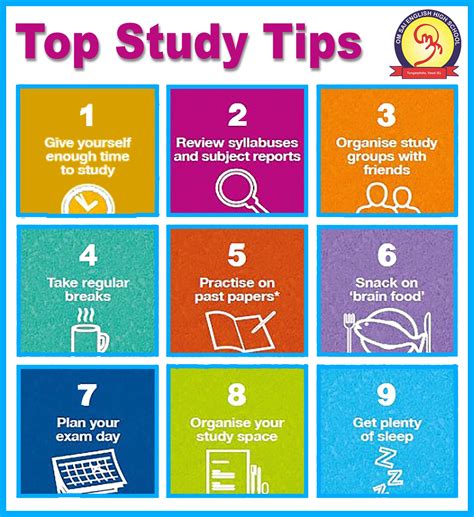Exams can be a daunting challenge, leaving you wondering how to tackle them effectively. While there’s no one-size-fits-all approach, implementing specific study techniques can significantly enhance your exam performance. From creating a personalized study plan to employing active recall, we’ll explore proven methods that will empower you to approach exams with confidence and maximize your chances of success. Are you ready to unlock the secrets of effective study techniques?
Before You Start: Essential Study Techniques for Exam Success
To ensure success in exams, it’s crucial to adopt effective study techniques that cater to your individual learning style. A personalized study plan, active recall, spaced repetition, interleaving, and retrieval practice are essential components to unlock your full potential and excel in your exams.
Creating a Personalized Study Plan
Every student has unique strengths and weaknesses; thus, tailoring a study plan to suit your needs is paramount. Consider your learning style, available time, and the difficulty of the subject matter. Break down the material into manageable chunks and allocate specific study periods throughout the week. Consistency is key to effective learning.
Mastering Active Recall
Active recall is a powerful technique that enhances information retention. Instead of passively reading or highlighting, actively test yourself by recalling information from memory. Use flashcards, write summaries, or quiz yourself regularly. This process strengthens neural connections and improves your understanding of the material.

Implementing Spaced Repetition
Spaced repetition involves reviewing information at increasing intervals. This technique strengthens memories by exposing your brain to information multiple times over an extended period. Use spaced repetition apps or flashcards to schedule reviews and reinforce your learning.
Interleaving Subjects
Instead of studying one subject for extended periods, mix up your study sessions by alternating between different subjects. Interleaving helps prevent monotony and improves your ability to recall information from multiple contexts. This technique enhances cognitive flexibility and deepens understanding.
Engaging in Retrieval Practice
Testing yourself regularly through retrieval practice is crucial for exam success. Use mock tests, practice questions, or past papers to assess your understanding. By simulating exam conditions, you identify areas for improvement and boost your confidence.
Elaborating on New Knowledge
Elaboration involves connecting new information to existing knowledge in your brain. This technique strengthens neural pathways and improves recall. Explain concepts in your own words, make connections to real-life examples, or create mind maps to enhance understanding.
Visual Aids: Harness the Power of Diagrams and Charts
Visual aids are highly effective for comprehending complex concepts. Use diagrams, charts, mind maps, and flowcharts to visualize information. This approach improves understanding, enhances retention, and makes studying more engaging.
Employing Mnemonics: Memory Tricks to Aid Recall
Mnemonics are memory aids that help you retain information. Use acronyms, songs, rhymes, or images to associate new concepts with familiar ones. This technique can significantly improve your ability to recall information, especially for lengthy or complex material.
Effective Time Management: Prioritize and Optimize Study Time
Time management is crucial for exam success. Prioritize your tasks based on importance and urgency. Use a planner or to-do list to stay organized. Take breaks throughout your study sessions to maintain focus and avoid burnout. Utilize technology such as reminders or apps to stay on track.
Environment Optimization: Create a Conducive Study Space
Your study environment plays a significant role in your productivity. Choose a quiet and comfortable place with minimal distractions. Ensure proper lighting, ventilation, and ergonomics to create a space that supports focused learning.
Collaboration: Study with Others to Enhance Understanding
Studying in groups can be highly beneficial. Discuss concepts with your peers, quiz each other, and share different perspectives. Collaborating with others helps clarify concepts, broaden understanding, and provides support during challenging times.
Conclusion: Empower Yourself for Exam Success
Exams are an integral part of the academic journey. By adopting these effective study techniques, you can transform your learning process, improve your information retention, and boost your confidence in exams. Remember, consistency, active participation, and a positive mindset are key to unlocking your academic potential. Embrace these strategies and conquer your exams with flying colors.
Closing Words: Disclaimer
The information provided in this article serves as a general guide to effective study techniques. It is recommended to consult with your instructors, academic advisors, or learning specialists for personalized guidance tailored to your specific needs and circumstances. The authors and contributors assume no responsibility or liability for any outcomes or actions taken as a result of the information presented in this article.